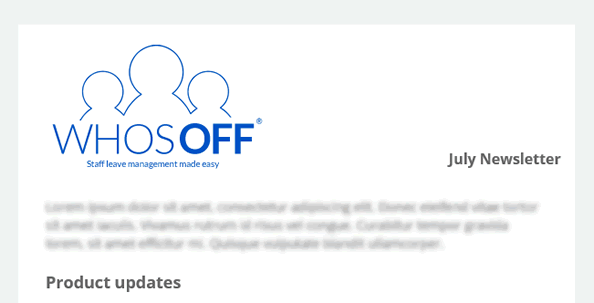We’re all going on a summer holiday… or are we? Latest research suggests most Brits are leaving it late to book their annual break, in light of changing social restrictions. In fact, 68% of people still haven’t arranged their summer holiday for 2021.
But while many people are happy to fling some items into a suitcase at the last minute, spontaneous time off is a massive headache for employers. Without the usual pre-bookings to plan around, company managers and HR staff could find yourselves with an eleventh hour admin pile – and potential staff shortages too.
Booking early could be a big gamble
After the turbulence and unpredictability of the past 12 months, it’s understandable that many people are reluctant to make plans for the summer. The average family spent nearly £5,000 per year on holidays pre-Covid; that’s a lot of money to say goodbye to if plans fall through.
While there’s a clear timeline in place for easing pandemic restrictions, and there will be some financial protection in place for cancellations caused by another lockdown, many people don’t feel comfortable booking their break just yet. Some people may want to see what the R rate is nearer the time, then make a last minute judgement call on organising their summer holiday. Especially after disappointments like the U-turn on household bubbles for Christmas 2020.
As an employer, you want your staff to do what’s right for them personally… but this doesn’t help with workload planning. Summer is usually the one time of year where couples, friends and family plan their leave far ahead, which gives you lots of time to coordinate bookings and arrange temporary cover if needed. But summer 2021 is going to look a lot different.
Limit the impact of annual leave disruption
Many companies will have annual leave policies in place that determine how far in advance your staff should book holidays. However, this year you may get pushback, as employees worry about committing to a date before coronavirus travel guidelines have been eased.
Permitting last minute leave bookings will undoubtedly improve staff morale, but at what price to your business? Unless you’ve got a smooth holiday booking process, letting people take time off at short notice can have some serious knock-on effects. For example:
- Team managers are under pressure to approve holiday requests quickly, interfering with their day-to-day workload
- HR teams face stressful surges in admin, as they check people’s entitlements, see if anyone has booked time off already, and manage all the paperwork
- Mistakes are made because you’re running at speed – resulting in two important people booking the same days off, or a general staff shortage during a busy people
- Customer workload has to be rescheduled as you can’t have team members out at meetings when you’re under-staffed, or you don’t have the resources to meet deadlines
- Colleagues who are still in the office feel frustrated and put-upon by those who are on holiday, because they’re having to pick up extra work
- Staff return from leave to an overflowing inbox or endless to-do list, wiping out the wellbeing and restorative energy they brought back from holiday
What’s the solution? Find a better way to manage annual leave, so you can let people request time off as late as possible without it impacting productivity and morale.
Last minute requests shouldn’t leave you in the lurch
The simplest, quickest way to improve your holiday booking system is to invest in an online staff leave planner. This manages all requests, approvals and time off admin centrally, so there’s no complex paper trail or email chain attached to every holiday booking.
A digital holiday calendar gives your business greater flexibility regarding annual leave policies, because everyone can access accurate information when they need it.
For example, you can use your leave planning software to allocate and track holiday entitlements, so every employee can check how much holiday they have left to use. You can also give everybody view-only access to your holiday calendar, so they can look at who’s booked time off already before requesting leave, to avoid calendar clashes.
That same calendar can be edited by set members of staff – for example, team leaders and HR personnel – at the same time. This way, nobody is saving their own version to their desktop, or overwriting someone else’s changes. And they can keep track of who’s booked what time off, to make sure staff aren’t saving up too much leave at the end of the holiday year.
Crucially, you can also enforce leave booking guidelines through your staff planning software, to help employees with admin access to follow company policies. For instance, setting the system up so it flags when too many staff have been granted the same time off. Or limiting how many people can be absent from each department or at each seniority level.

Be more responsive in planning and managing annual leave
Coordinating annual leave during a pandemic has been no easy feat for most companies – and the challenges will continue throughout 2021. As people continue to disregard traditional holiday booking patterns, instead holding out to see if/when international travel restrictions will start easing, business leaders have to be responsive in the way time off is planned, approved and managed.
Upgrading to an online work holiday planner is one simple way to reduce the burden placed on your organisation, while giving as many people as possible the time off they request. By embracing digital processes and centrally viewable calendars, you can feel confident that staff will enjoy a well-earned summer holiday – without returning to chaos at work.
WhosOff is an online leave planner, already helping over 150,000 users across 65 countries to plan work holiday better. Book your free WhosOff trial to find out more.
Photo by asim alnamat and Jill Wellington of Pexels.com

